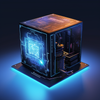The Ultimate Reality
The Chinese government's AI invasion into privacy had now spread its tentacles into Beijing. Schools monitored every blink, every sigh of their students, tailoring lessons based on these metrics.
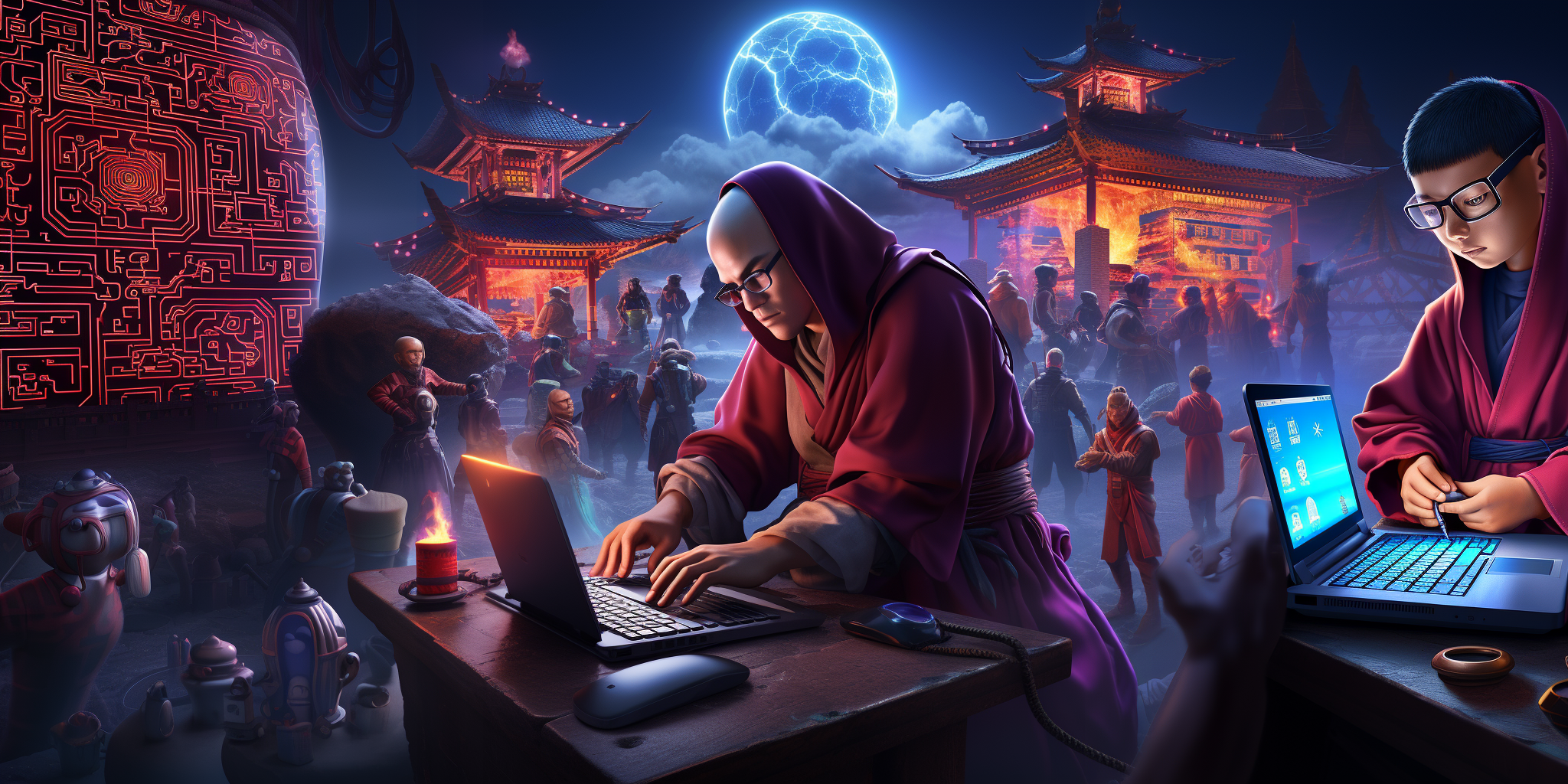
A subtle beep emanated from Gou’s desk. He picked up his phone, pulling up his Instagram feed. The first post grabbed his attention: a short clip of Beijing streets, blurred faces of protesters, and hazy images of screens depicting AI facial recognition mishaps. The caption read: "Beijing AI vs. Shadow: The Battle Begins."
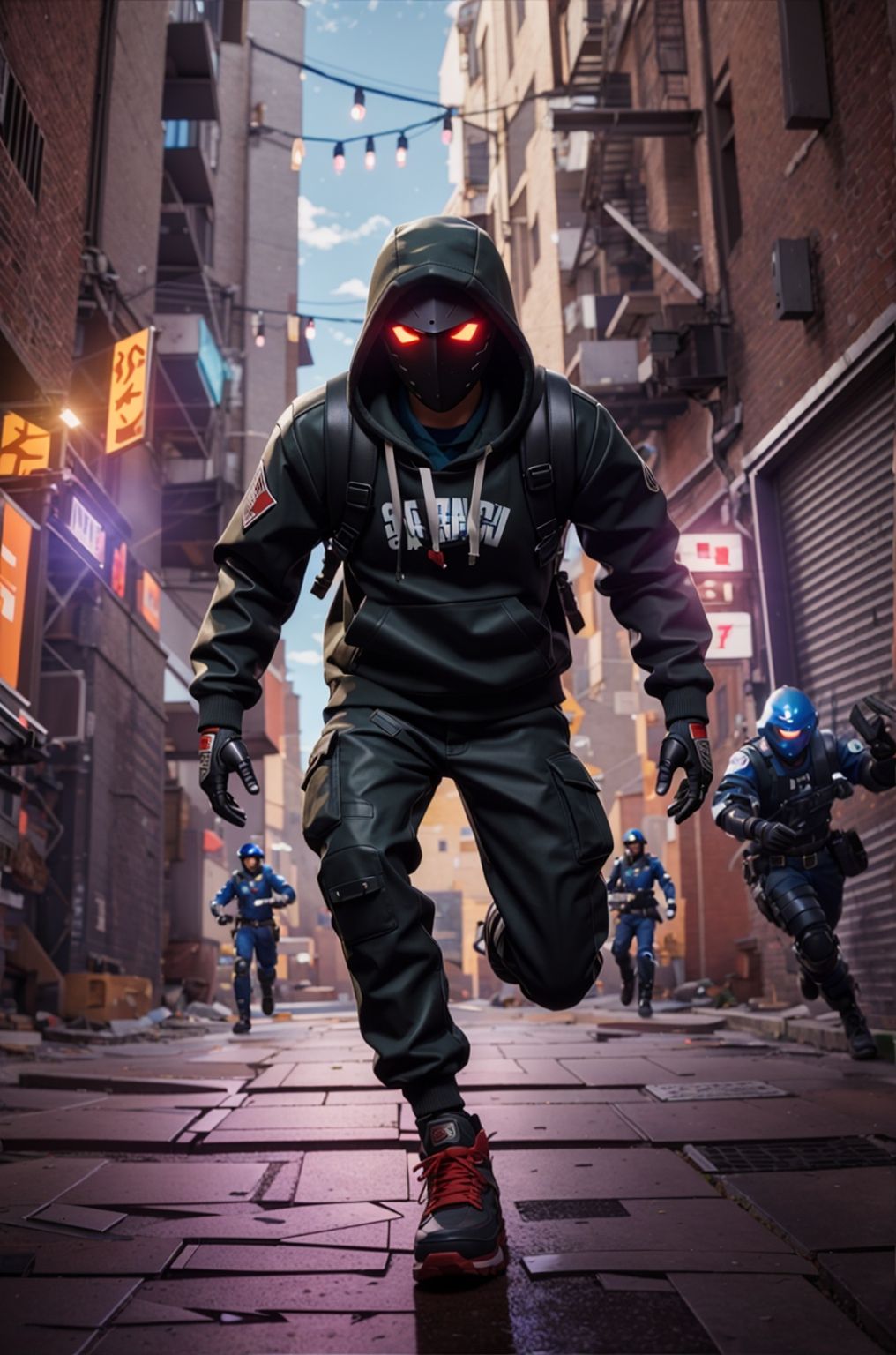
Gou leaned back in his chair. His heart raced slightly. Beijing, a place he once considered the epitome of technology and culture, was now spiraling into a dystopian nightmare. The Chinese government's AI invasion into privacy had now spread its tentacles into Beijing. Schools monitored every blink, every sigh of their students, tailoring lessons based on these metrics. Streets had cameras analyzing facial expressions, changing advertising billboards to manipulate consumer behavior. It was a world choreographed by algorithms, predicting and mandating the next step of every individual.

Eager for more details, Gou fired up the Gneeks' Discord server. His top-tier access credentials placed him right in the heart of the ongoing chatter. Voices from around the world were already buzzing about Shadow. These Gneeks were a splinter faction, already discussing giving Shadow Eye a top-level mod role. A prodigy who'd risen from Beijing's neon-lit back-alleys, Shadow Eye, designed an AI worm to combat the government’s AI systems, spawning false positives and rendering the surveillance useless.
"Beijing's AI is a force, but we've got the leash," one message read. Another said, "Shadow Eye is a hero. We've got to help Shadow!"
Gou’s fingers hovered over the keyboard. He could help; he had the skills, the connections. And yet, as he was about to type, a new message popped up: "Gou, you seeing this? You in?"
For a moment, Gou was torn. Shadow needed help, but was this his fight? His eyes darted to a Post-it note stuck to his monitor, a reminder of his main mission: "Into the Ether."
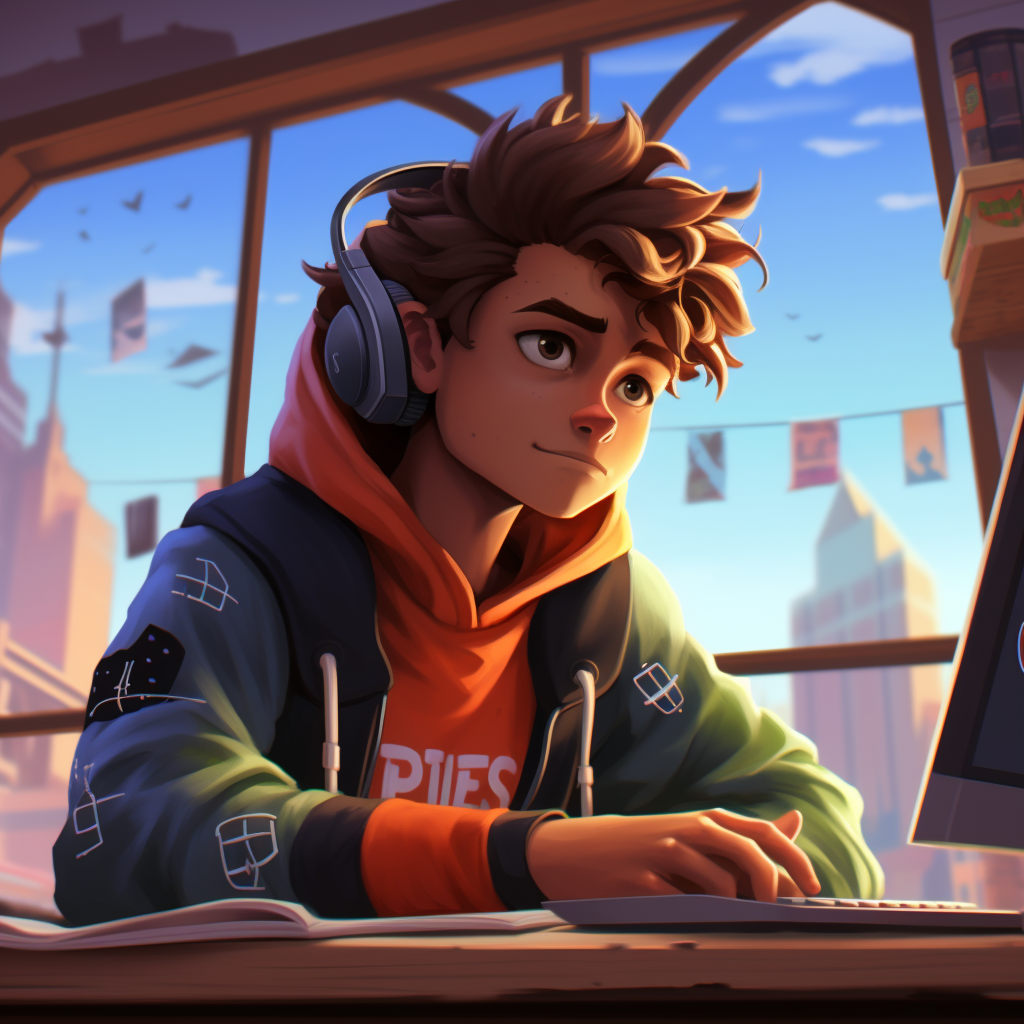
Taking a deep breath, Gou began typing, "I see it. And I believe in the cause. But my path is set. I’m diving deeper. Into the Ether."
The chat erupted in mixed reactions, some in understanding, others in frustration. But Gou knew his path. He closed the server, took one last look at the Instagram post, and then delved back into his work. The digital realm was vast, and while Beijing was just one node, Gou believed in a solution that spanned the entire grid. And he was close, so very close, to unlocking it.
In the bustling streets of Chengdu, young Li Jun would often sit by the road, his almond-shaped eyes reflecting the neon lights, looking up at the perpetual haze, trying to catch a glimpse of China's "Eye in the Sky." The satellite system was said to be the most intricate network in the world, watching and recording, absorbing all of China's life in bits and bytes. Li Jun, a twelve-year-old boy, would soon be renamed by the masses. They'd come to know him as Shadow Eye.
Li Jun's journey into the world of cyber espionage began in the corner of a dimly lit room in his home. On her deathbed, his mother, a woman of delicate health but fierce ambition, presented him with a laptop. She whispered, "Be the wizard you were born to be. This is your way out."

It wasn't just any laptop. It was a high-end gaming machine, with capabilities most kids could only dream of. To Li Jun, it was a portal. But his father, a stern traditionalist, saw it differently. He believed in the old ways, where knowledge came from books and teachings, not screens and codes. When Li Jun resisted his father’s decrees, tensions rose until one day, in a fit of rage, his father threw the laptop against the wall. Li Jun decided then and there to run away.

With the laptop in his backpack, broken but not beyond repair, he fled to the mountains of northern China. There, in the hidden folds of snow-capped peaks, he found a sanctuary with the cybermonks. These were tech zealots, who, due to various reasons, had no access to the hardware of the digital world. Yet, they inscribed algorithms on parchment, visualizing cyber battles in their meditations. They embraced Shadow Eye, intrigued by the broken laptop and the boy's prodigious skills.
Li Jun quickly absorbed their knowledge. But he had something more: a deeply coded algorithm that wasn't taught or learned, but felt. Whispers spread of his ability to work with quantum-level calculations, tackling problems most coders wouldn’t even understand. Rumors said he'd accessed the "God's Code," an all-knowing, all-powerful algorithm that used infinite simultaneous polymorphism and reflection.
Polymorphism Example
class Cat:
def speak(self):
return "Meow"
class Dog:
def speak(self):
return "Woof"
def animal_sound(animal):
print(animal.speak())
# Demonstration
animal_sound(Cat())
animal_sound(Dog())In this code:
- Both
CatandDogclasses have a method namedspeak. - The function
animal_soundcan accept any object that has aspeakmethod and will print the sound. This demonstrates polymorphism because it works with any object (likeCatorDog) that "adheres to the expected interface" (having aspeakmethod) without caring about the type of the object.
Reflection Example
class Example:
def method(self):
return "Hello, Reflection!"
# Create an instance
obj = Example()
# Using reflection to check if the object has a method named 'method'
if hasattr(obj, 'method'):
# Using reflection to get a reference to the method
method_ref = getattr(obj, 'method')
# Call the method using the reference
print(method_ref())In this example:
- We define a simple class
Examplewith a method namedmethod. - We then create an instance of that class.
- Using the
hasattrfunction, we check if the object has an attribute/method namedmethod. - We then use the
getattrfunction to get a reference to that method. - Finally, we call the method using the obtained reference.
This illustrates reflection by dynamically checking for the presence of a method and then retrieving and invoking it.
The story, continued...
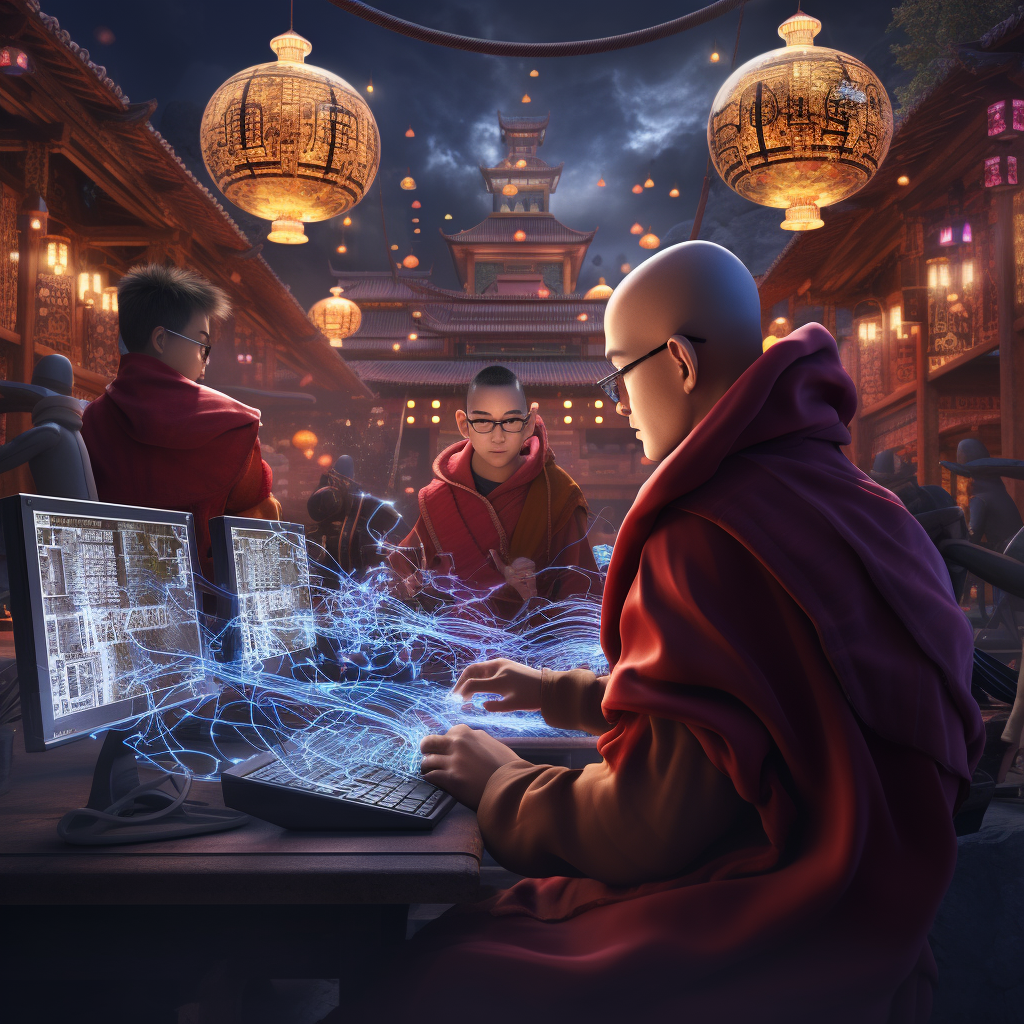
Then came the day that defined Shadow Eye. He accessed the "Eye in the Sky" archives with a patchwork connection. The surveillance web sprawled before him, filled with secrets, government misdeeds, and the lives of millions. No one believed a boy like him until he streamed it all live on China's national television.
The country was in an uproar. Shadow Eye was branded a traitor, a hacker, an outlaw. His face was everywhere, with a price so high, it would tempt saints. That's when the Gneeks intervened. They hid him in the vast maze of the cyber world, always one step ahead of the hunters.
To the world, Shadow Eye was an enigma. But those who knew his story knew the truth: a child prodigy driven by a dream of his mother and monks' teachings, wielding a power that could either doom or save the digital world.
Hunched over his workstation, beads of sweat trickling down his brow, Gou felt the weight of the knowledge he bore. His fingers danced over the keys, pulling up news articles, images, and whispers from the underground about Shadow Eye. His monitor flickered with each new piece of information, the intensity increasing as Gou's realization dawned: this kid, this prodigious entity on the run, might be the very person to guide him through the looming danger.
Gou had delved deeper into the ether than anyone had dared before. He believed he'd found a way to access the 'database of souls', a complex labyrinth of human essence, emotions, experiences, and the very things that made humans human. But with such groundbreaking revelations came great risks. The "Powers that Be" were no strangers to him. They were always watching, waiting for a slip, a mistake, something to trace back to him. And the discovery he made, it was enough to put him at the top of their hit list.
He needed guidance, a mentor perhaps. Someone who'd been through the grind, who'd faced the might of the "Powers that Be" and lived to tell the tale. Shadow Eye was that beacon. But how do you reach someone so well hidden? Gou knew he couldn't do it directly; it would put them both at risk. Zion, his confidant and the master connector in the Gneeks, would know how.
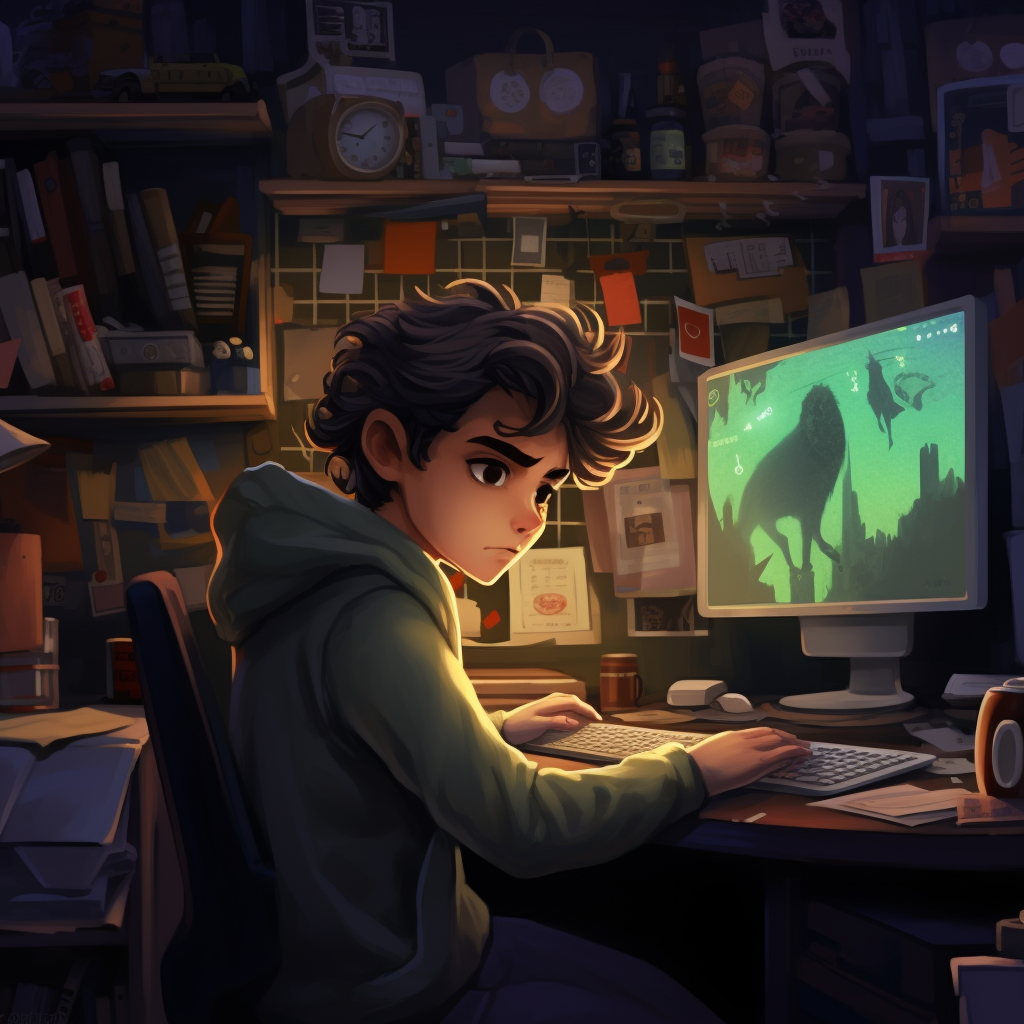
Late one evening, under the soft neon glow of his workspace, Gou dispatched a coded message to Zion: "Seek the Eye that Lurks in Shadows. Tell him the Database of Souls has been found. The hunters are close. Guidance needed."
Zion, ever-efficient, immediately grasped the gravity of the situation. Utilizing channels even Gou wasn't privy to, he sent a whisper into the underground, hoping it'd reach the enigmatic Shadow Eye.
Days turned into nights. Gou received an encrypted message as the sun set on the fourth day. It read, "The Eye has seen. The ether is vast, and you've touched the forbidden. Stay low, trust no shadow, and listen to the winds. They'll guide you. I'll be in touch."
Gou leaned back, absorbing the message, relief evident on his face. He wasn't alone in this. The weight on his shoulders felt a tad bit lighter. The path ahead seemed more possible as he prepared to venture deeper into the ether, armed with knowledge and a potential ally in Shadow Eye. The digital revolution was beginning.
Gods Code
class UniverseEntity:
def properties(self):
raise NotImplementedError("Each entity must define its properties")
def origin(self):
raise NotImplementedError("Each entity must define its origin")
class Darkness(UniverseEntity):
def properties(self):
return ["Absence of light", "Cold"]
def origin(self):
return "Beginning of the Universe"
class LightPhoton(UniverseEntity):
def properties(self):
return ["Wave-particle duality", "Travels at speed of light"]
def origin(self):
return "Emerged from darkness"
class Life(UniverseEntity):
def properties(self):
return ["Ability to reproduce", "Metabolism"]
def origin(self):
return "Sparked by light photons"
class Human(Life):
def properties(self):
return super().properties() + ["Intelligence", "Bipedal locomotion"]
def origin(self):
return "Evolved from primitive life forms"
def display_entity_info(entity):
print(f"Entity: {entity.__class__.__name__}")
print(f"Properties: {', '.join(entity.properties())}")
print(f"Origin: {entity.origin()}")
print("-" * 40)
# Demonstration
entities = [Darkness(), LightPhoton(), Life(), Human()]
for entity in entities:
display_entity_info(entity)In this code:
UniverseEntityis an abstract base class that other classes will inherit from. It ensures that each entity has properties and an origin.- The classes
Darkness,LightPhoton,Life, andHumaninherit fromUniverseEntityand define their unique properties and origins. - The
Humanclass inherits fromLife, demonstrating polymorphism by extending its properties. - The
display_entity_infofunction accepts anyUniverseEntityobject and displays its details. This demonstrates polymorphism as we can pass any derived class ofUniverseEntityto it and expect consistent behavior.
This code snippet gives a simplified view of the evolution of the universe, light, life, and humans, using object-oriented principles and polymorphism.

